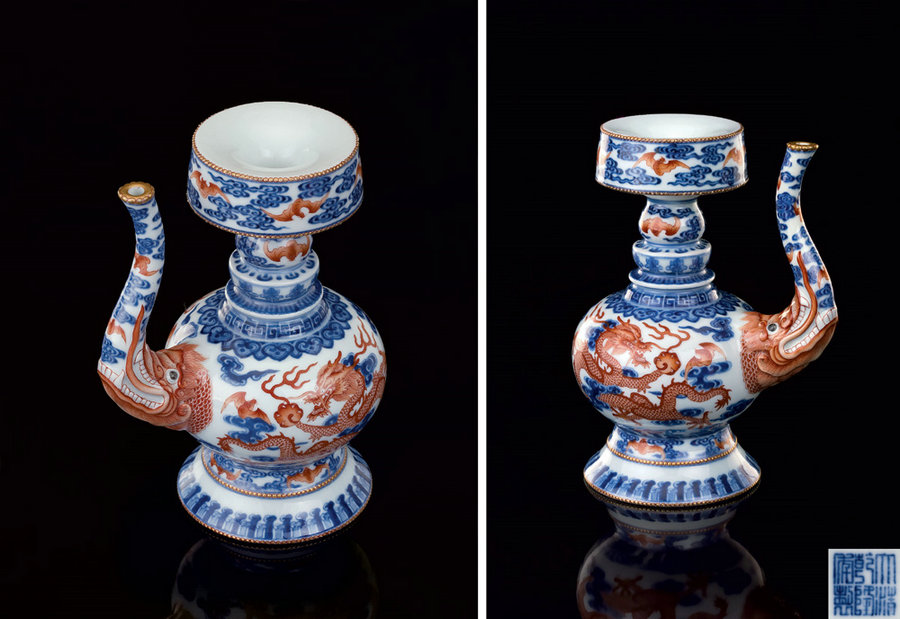The Imperial kiln wares reflect the taste of famous emperors
Updated: 2014-10-28 06:55
(Chinaculture.org)
 |
|
A fine and extremely rare pot from the Qianlong period [Photo/ english.cguardian.com] |
Qianlong Emperor, the son of Yongzheng Emperor, ruled the Qing Empire and lived a luxurious lifestyle, unlike his father. Although his early years saw the continuation of an era of prosperity, his final years saw troubles as corruption lead to the decline of the empire. Qianlong Emperor spent large amount of money on artworks, so the Imperial kiln manufactured the largest number of pieces during this period. Qianlong Emperor was also willing to be creative and a variety of wares in new shapes during his ruling time were created.
The shape of this porcelain pot above actually originated in Tibet. The Tibetans initially made this kind of metal pot for sacrificial offerings. Qianlong Emperor believed in Buddhism deeply, so he ordered the Imperial kiln to manufacture every kind of item related to Buddhism. This porcelain pot, above, which sold for 35,840,000 RMB at the China Guardian 2010 Spring Auctions, was a perfect combination of the Tibetan shape and the manufacturing skills of the creators of Imperial porcelain. It is not only an artwork, but also a sign of cultural blending in ancient China.